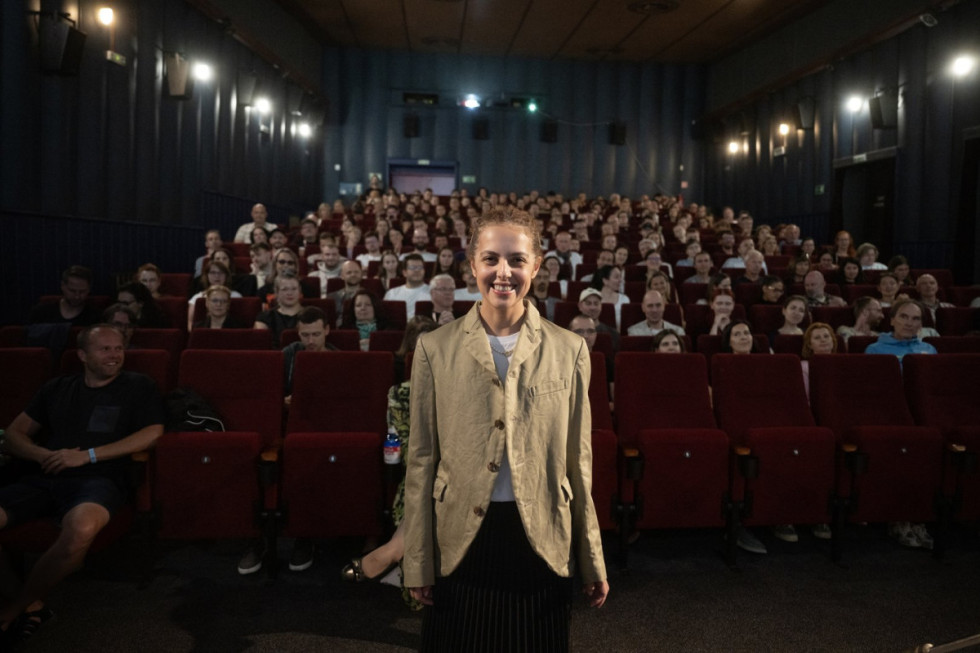
July 09, 2025, 15:48

Dea Kulumbegashvili returned to KVIFF as a mentor to the young filmmakers selected for this year’s Future Frames programme, and as the director of April, which earned the Special Jury Prize at the Venice Film Festival.
This visually compelling drama follows a doctor helping women who seek abortions. Despite its international acclaim, April will not be seen in cinemas “at home”. “April has not been screened in Georgia and we don’t expect that to happen under the current government,” the director said. “When we were making the film, the authorities didn’t know what it was about. We didn’t apply for any state funding. The subject was shared only with selected people and doctors who helped us and whose names I don’t dare to mention here, so as not to put them at risk,” she explained the problems the film faced in Georgia.
Filming took place in Georgia near the Azerbaijani border, where Dea Kulumbegashvili grew up. “I always assumed Georgia would always be there for me because it’s such a cinematic landscape. Of course, you can’t really film in Georgia today unless you want to make government propaganda. Still, I believe that my country will remain with me, no matter where I work. My relationship with Georgia is very complex, with all the beauty and pain it holds,” said the director, who currently lives in Germany. “In Georgia I could do a lot of things, no one paid much attention to me. We had little money but plenty of time and privacy. We’ll see how I do outside the country,” she added.
April is Kulumbegashvili’s second film, and like her debut, Beginning, it is highly visual and uses an almost square aspect ratio. “Maybe this helps me narrow the perspective, direct the viewer’s attention and give them space to complete the image through their own experience and imagination,” she mused.
During the debate at the Drahomíra Cinema she also shared her creative process. “I suppose my way of working is a bit complicated. I start with an idea, but I have to find a way of turning it into a film. Then I call my director of photography and friend Arseni Khachaturan, and we go to different places where we spend some time. We’re looking for locations without a script. For me, the film is an invitation to watch, an attempt to see. I’m fascinated by people and I want to create a space where they can inhabit my film and bring something to the screen that I haven’t written.”
First-hand brews throughout the year.
Be among the first to learn about upcoming events and other news. We only send the newsletter when we have something to say.